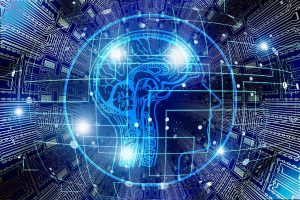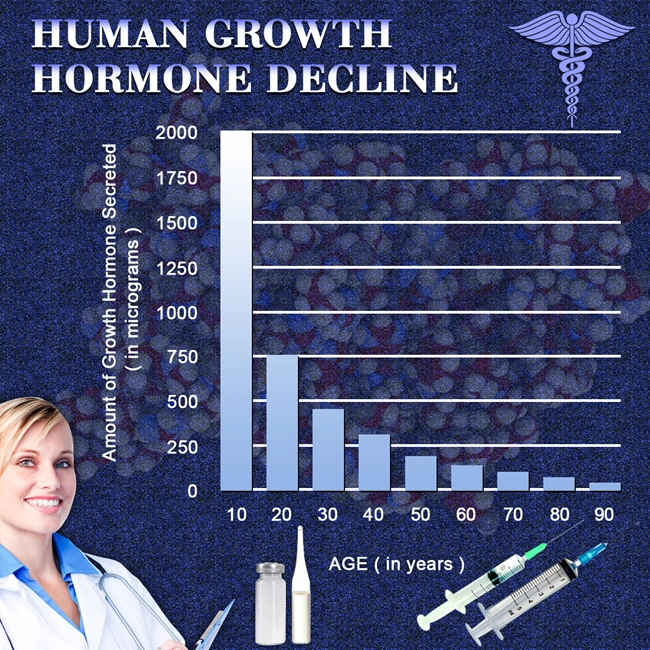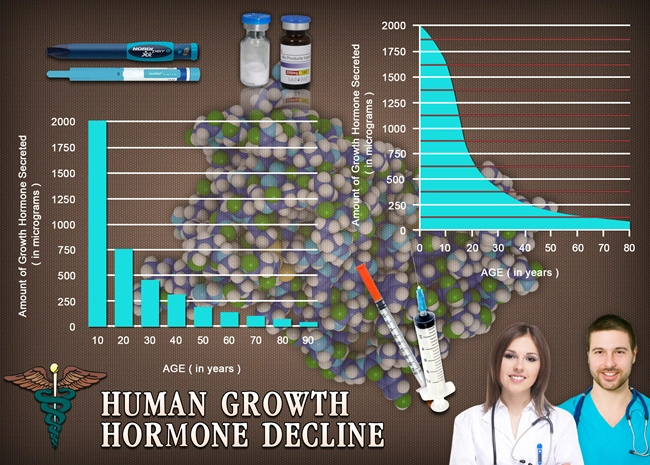
Abstract:
 A personal information ecosystem for acquiring traces of individual activity has been developed as a result of intense social media contact, wearable technology, mobile applications, and widespread sensor use. These digital footprints are what people leave behind after living their whole lives online. Artificial intelligence developments have fueled our desire to create artificial agents that may learn from these digital traces to behave in a manner akin to that of a deceased person, and people now face the potential of immortalizing their thoughts, logic, and conduct. Can mortality be achieved? Are individuals ready for that? Are people ready to take it on? How do individuals feel about the idea of entrusting their digital legacy to digital avatars?
A personal information ecosystem for acquiring traces of individual activity has been developed as a result of intense social media contact, wearable technology, mobile applications, and widespread sensor use. These digital footprints are what people leave behind after living their whole lives online. Artificial intelligence developments have fueled our desire to create artificial agents that may learn from these digital traces to behave in a manner akin to that of a deceased person, and people now face the potential of immortalizing their thoughts, logic, and conduct. Can mortality be achieved? Are individuals ready for that? Are people ready to take it on? How do individuals feel about the idea of entrusting their digital legacy to digital avatars?
Through the integration of existing literature and a review of recent advances in AI immortality research, we want to provide insights on the viability and desirability of using AI immortality to prolong human lifespan indefinitely.
Introduction:
In our everyday lives, information technology plays a significant role as a tool to manage the continual information avalanche we are exposed to. We have adjusted to this constantly changing world that makes us reliant on technology. A reorientation of the information and interests that direct our actions is implied by the changes in our way of life brought on by technology. In addressing human values in the digital age, it is said that the "end of the ephemeral" is one of the fundamental shifts in how we react to technology. These alterations introduce subjects that question our view about the role of technology in our personal taboos, one of which is death. The development of artificial intelligence (AI) in recent years has sparked new discussions and hypotheses regarding the potential of humans reaching technological immortality. This paper examines the numerous features of AI human immortality, looking at both its theoretical and practical aspects.
AI Advancements Regarding Immortality:
According to Crocker and McLeod, a legacy may be anything that is left behind to endure as a form of message for people in the future, including papers, music, images, playlists, visualization histories, social network accounts, and even the hardware for storage. Except for the environment, the goals of digital and physical legacies are fairly similar.
Human-computer interaction (HCI) in Brazil and other nations still faces significant challenges, including how to recognize and allocate destinations to digital legacies. More digital legacies are being lost or made unavailable to families and loved ones as more individuals die away, either due to ignorance or apathy. [1]
Currently, businesses like Facebook and Google provide customers the opportunity to completely change their digital profiles into digital memorials when it has been confirmed that they have passed away.
Zhavoronkov emphasized the efforts made by Insilico to fight aging and the diseases associated with it. OncoFinder, an algorithm that studies the molecular pathways connected to the progression of cancer and aging, is one such effort. He believes that the only way to fully manage aging medically is to apply AI to it. His long-term objectives include constantly enhancing human performance and preventing and treating ailments associated with aging. [2]
Theoretical Framework: Can Machine Learning Unlock Insights Into Mortality?
In spite of privacy problems making it difficult to connect claims and mortality data directly, developments in privacy-preserving techniques like differential privacy may increase data accessibility and usefulness. Machine learning may be taught on this connected data when differential privacy permits claims-based linking between clinical data items and death status. In order to distinguish between disenrollment due to death and disenrollment due to changes in insurance coverage in claims-based research, providers of administrative claims databases, for example, frequently have internal access to death data. Effectively, this means making a distinction between death and administrative censorship that can be regarded as being uninformative.
Machine learning places more emphasis on empirical prediction of a result than traditional statistical approaches, which are better suited to evaluating predetermined hypotheses regardless of the model's parametric shape (explanatory power). In order to pick the best predictors for the final algorithm, machine learning techniques may quickly examine hundreds of candidate predictors utilizing data-adaptive detection of complicated patterns, such as nonlinear correlations and high-order interactions. The immortality AI & ML claims data may be used to efficiently impute missing or insufficient death status by maximizing prediction performance. [3]
Challenges of AI Immortality and Future Outlook:
Challenges:
It is incredibly challenging to replicate and maintain human consciousness or to achieve digital human immortality. It requires developing technology capable of simulating or hosting human consciousness in addition to understanding the complexity of the human brain.
The implications of artificial intelligence becoming eternal are profound. Overpopulation, resource allocation, and inequality are all issues. Additionally, issues with permission and autonomy must be addressed since people may be required to make decisions about their own digital lives.
Future Outlook:
Despite these difficulties, some academics and dreamers like Alex Zhavoronkov still want to achieve AI immortality.
AI will undoubtedly keep advancing immortality research and personalized medicine, progressively extending human life expectancy through better healthcare and disease prevention. A digital legacy or avatar representing a person's knowledge, memories, and aspirations has the potential to gain popularity. As a result, people could be able to continue their legacy after passing away naturally.
Public opinion and regulatory bodies will have a major impact on the creation and application of AI immortality technologies. The direction of research will be affected by popular opinion and cultural acceptance. Progress in AI immortality will need cooperation amongst experts in AI, neuroscientists, ethics, and legislators. Multidisciplinary approaches will be needed to address the numerous concerns at hand.
Conclusion: Can mortality be achieved?
We are currently witnessing advancements in technology that combine our human bodies with information management, data mining, and artificial intelligence. In this process of "body hacking," antenna are implanted in our brains to transform the color spectrum into distinct vibrations, allowing the user to "hear" colors. Our arms are also given chips to unlock doors and pick up metal things. While some view this as art and others as a technology play, there have been significant advancements, such as the development of bone implants that allow the attachment of a replacement limb on the skeleton and allow for natural control via brain impulses.
Contact Us Today For A Free Consultation
Dear Patient,
Once you have completing the above contact form, for security purposes and confirmation, please confirm your information by calling us.
Please call now: 1-800-380-5339.
Welcoming You To Our Clinic, Professor Tom Henderson.

- Our HGH Clinic And Web Site Privacy Policy [Last Updated On: May 23rd, 2019] [Originally Added On: December 14th, 2017]
- Idaho HGH Clinics [Last Updated On: December 22nd, 2023] [Originally Added On: March 19th, 2018]
- Injectable HGH Prescriptions In Cheyenne, Wyoming [Last Updated On: September 19th, 2023] [Originally Added On: March 3rd, 2019]
- Injectable HGH Prescriptions In Milwaukee, Wisconsin [Last Updated On: October 4th, 2023] [Originally Added On: March 3rd, 2019]
- Injectable HGH Prescriptions In Madison, Wisconsin [Last Updated On: August 25th, 2023] [Originally Added On: March 3rd, 2019]
- Injectable HGH Prescriptions In Green Bay, Wisconsin [Last Updated On: August 1st, 2023] [Originally Added On: March 3rd, 2019]
- Injectable HGH Prescriptions In Charleston, West Virginia [Last Updated On: November 29th, 2023] [Originally Added On: March 3rd, 2019]
- Injectable HGH Prescriptions In Vancouver, Washington [Last Updated On: February 18th, 2025] [Originally Added On: March 3rd, 2019]
- Injectable HGH Prescriptions In Tacoma, Washington [Last Updated On: January 16th, 2025] [Originally Added On: March 3rd, 2019]
- Injectable HGH Prescriptions In Spokane, Washington [Last Updated On: September 27th, 2023] [Originally Added On: March 3rd, 2019]
- Injectable HGH Prescriptions In Seattle, Washington [Last Updated On: December 27th, 2023] [Originally Added On: March 3rd, 2019]
- Injectable HGH Prescriptions In Washington D.C [Last Updated On: January 15th, 2025] [Originally Added On: March 3rd, 2019]
- Injectable HGH Prescriptions In Bellevue, Washington [Last Updated On: November 24th, 2024] [Originally Added On: March 3rd, 2019]
- Injectable HGH Prescriptions In Virginia Beach, Virginia [Last Updated On: January 18th, 2025] [Originally Added On: March 3rd, 2019]
- Injectable HGH Prescriptions In Richmond, Virginia [Last Updated On: January 25th, 2025] [Originally Added On: March 3rd, 2019]
- Injectable HGH Prescriptions In Portsmouth, Virginia [Last Updated On: September 13th, 2023] [Originally Added On: March 3rd, 2019]
- Injectable HGH Prescriptions In Norfolk, Virginia [Last Updated On: December 24th, 2023] [Originally Added On: March 3rd, 2019]
- Injectable HGH Prescriptions In Newport News, Virginia [Last Updated On: September 16th, 2023] [Originally Added On: March 3rd, 2019]
- Injectable HGH Prescriptions In Hampton, Virginia [Last Updated On: January 11th, 2025] [Originally Added On: March 3rd, 2019]
- Injectable HGH Prescriptions In Chesapeake, Virginia [Last Updated On: January 9th, 2025] [Originally Added On: March 3rd, 2019]
- Injectable HGH Prescriptions In Arlington, Virginia [Last Updated On: February 6th, 2025] [Originally Added On: March 3rd, 2019]
- Injectable HGH Prescriptions In Alexandria, Virginia [Last Updated On: December 13th, 2023] [Originally Added On: March 3rd, 2019]
- Injectable HGH Prescriptions In Montpelier, Vermont [Last Updated On: October 20th, 2023] [Originally Added On: March 3rd, 2019]
- Injectable HGH Prescriptions In West Valley City, Utah [Last Updated On: September 26th, 2023] [Originally Added On: March 3rd, 2019]
- Injectable HGH Prescriptions In West Jordan, Utah [Last Updated On: July 17th, 2023] [Originally Added On: March 3rd, 2019]
- Injectable HGH Prescriptions In Salt Lake City, Utah [Last Updated On: January 28th, 2025] [Originally Added On: March 3rd, 2019]
- Injectable HGH Prescriptions In Provo, Utah [Last Updated On: November 19th, 2023] [Originally Added On: March 3rd, 2019]
- Injectable HGH Prescriptions In Wichita Falls, Texas [Last Updated On: August 27th, 2023] [Originally Added On: March 3rd, 2019]
- Injectable HGH Prescriptions In Waco, Texas [Last Updated On: July 19th, 2023] [Originally Added On: March 3rd, 2019]
- Injectable HGH Prescriptions In San Antonio, Texas [Last Updated On: February 4th, 2025] [Originally Added On: March 3rd, 2019]
- Injectable HGH Prescriptions In Round Rock, Texas [Last Updated On: December 29th, 2024] [Originally Added On: March 3rd, 2019]
- Injectable HGH Prescriptions In Richardson, Texas [Last Updated On: July 1st, 2023] [Originally Added On: March 3rd, 2019]
- Injectable HGH Prescriptions In Plano, Texas [Last Updated On: February 6th, 2025] [Originally Added On: March 3rd, 2019]
- Injectable HGH Prescriptions In Pasadena, Texas [Last Updated On: August 24th, 2023] [Originally Added On: March 3rd, 2019]
- Injectable HGH Prescriptions In Midland, Texas [Last Updated On: October 10th, 2023] [Originally Added On: March 3rd, 2019]
- Injectable HGH Prescriptions In Mesquite, Texas [Last Updated On: September 12th, 2023] [Originally Added On: March 3rd, 2019]
- Injectable HGH Prescriptions In McKinney, Texas [Last Updated On: December 4th, 2023] [Originally Added On: March 3rd, 2019]
- Injectable HGH Prescriptions In McAllen, Texas [Last Updated On: August 29th, 2023] [Originally Added On: March 3rd, 2019]
- Injectable HGH Prescriptions In Lubbock, Texas [Last Updated On: November 14th, 2023] [Originally Added On: March 3rd, 2019]
- Injectable HGH Prescriptions In Lewisville, Texas [Last Updated On: January 29th, 2025] [Originally Added On: March 3rd, 2019]
- Injectable HGH Prescriptions In Laredo, Texas [Last Updated On: October 15th, 2023] [Originally Added On: March 3rd, 2019]
- Injectable HGH Prescriptions In Killeen, Texas [Last Updated On: June 25th, 2023] [Originally Added On: March 3rd, 2019]
- Injectable HGH Prescriptions In Irving, Texas [Last Updated On: February 9th, 2025] [Originally Added On: March 3rd, 2019]
- Injectable HGH Prescriptions In Houston, Texas [Last Updated On: September 4th, 2023] [Originally Added On: March 3rd, 2019]
- Injectable HGH Prescriptions In Grand Prairie, Texas [Last Updated On: January 17th, 2025] [Originally Added On: March 3rd, 2019]
- Injectable HGH Prescriptions In Garland, Texas [Last Updated On: February 14th, 2025] [Originally Added On: March 3rd, 2019]
- Injectable HGH Prescriptions In Fort Worth, Texas [Last Updated On: October 6th, 2023] [Originally Added On: March 3rd, 2019]
- Injectable HGH Prescriptions In El Paso, Texas [Last Updated On: June 20th, 2023] [Originally Added On: March 3rd, 2019]
- Injectable HGH Prescriptions In Denton, Texas [Last Updated On: November 6th, 2023] [Originally Added On: March 3rd, 2019]
- Injectable HGH Prescriptions In Dallas, Texas [Last Updated On: December 31st, 2024] [Originally Added On: March 3rd, 2019]
- Injectable HGH Prescriptions In Corpus Christi, Texas [Last Updated On: December 23rd, 2024] [Originally Added On: March 3rd, 2019]
- Injectable HGH Prescriptions In Carrollton, Texas [Last Updated On: November 25th, 2024] [Originally Added On: March 3rd, 2019]
- Injectable HGH Prescriptions In Brownsville, Texas [Last Updated On: February 4th, 2025] [Originally Added On: March 3rd, 2019]
- Injectable HGH Prescriptions In Beaumont, Texas [Last Updated On: August 30th, 2023] [Originally Added On: March 3rd, 2019]
- Injectable HGH Prescriptions In Austin, Texas [Last Updated On: December 21st, 2024] [Originally Added On: March 3rd, 2019]
- Injectable HGH Prescriptions In Arlington, Texas [Last Updated On: January 13th, 2025] [Originally Added On: March 3rd, 2019]
- Injectable HGH Prescriptions In Amarillo, Texas [Last Updated On: July 22nd, 2023] [Originally Added On: March 3rd, 2019]
- Injectable HGH Prescriptions In Abilene, Texas [Last Updated On: January 5th, 2025] [Originally Added On: March 3rd, 2019]
- Injectable HGH Prescriptions In Nashville, Tennessee [Last Updated On: June 22nd, 2023] [Originally Added On: March 3rd, 2019]
- Injectable HGH Prescriptions In Murfreesboro, Tennessee [Last Updated On: June 28th, 2023] [Originally Added On: March 3rd, 2019]
- Injectable HGH Prescriptions In Memphis, Tennessee [Last Updated On: August 15th, 2023] [Originally Added On: March 3rd, 2019]
- Injectable HGH Prescriptions In Knoxville, Tennessee [Last Updated On: August 8th, 2023] [Originally Added On: March 3rd, 2019]
- Injectable HGH Prescriptions In Clarksville, Tennessee [Last Updated On: February 2nd, 2025] [Originally Added On: March 3rd, 2019]
- Injectable HGH Prescriptions In Chattanooga, Tennessee [Last Updated On: January 29th, 2025] [Originally Added On: March 3rd, 2019]
- Injectable HGH Prescriptions In Sioux Falls, South Dakota [Last Updated On: December 25th, 2024] [Originally Added On: March 3rd, 2019]
- Injectable HGH Prescriptions In Columbia, South Carolina [Last Updated On: February 2nd, 2025] [Originally Added On: March 3rd, 2019]
- Injectable HGH Prescriptions In Charleston, South Carolina [Last Updated On: January 31st, 2025] [Originally Added On: March 3rd, 2019]
- Injectable HGH Prescriptions In Providence, Rhode Island [Last Updated On: January 30th, 2025] [Originally Added On: March 3rd, 2019]
- Injectable HGH Prescriptions In Pittsburgh, Pennsylvania [Last Updated On: December 3rd, 2023] [Originally Added On: March 3rd, 2019]
- Injectable HGH Prescriptions In Erie, Pennsylvania [Last Updated On: January 4th, 2025] [Originally Added On: March 3rd, 2019]
- Injectable HGH Prescriptions In Allentown, Pennsylvania [Last Updated On: November 4th, 2023] [Originally Added On: March 3rd, 2019]
- Injectable HGH Prescriptions In Salem, Oregon [Last Updated On: January 31st, 2025] [Originally Added On: March 3rd, 2019]
- Injectable HGH Prescriptions In Portland, Oregon [Last Updated On: February 1st, 2025] [Originally Added On: March 3rd, 2019]
- Injectable HGH Prescriptions In Gresham, Oregon [Last Updated On: January 30th, 2025] [Originally Added On: March 3rd, 2019]
- Injectable HGH Prescriptions In Eugene, Oregon [Last Updated On: January 27th, 2025] [Originally Added On: March 3rd, 2019]
- Injectable HGH Prescriptions In Tulsa, Oklahoma [Last Updated On: December 15th, 2023] [Originally Added On: March 3rd, 2019]
- Injectable HGH Prescriptions In Oklahoma City, Oklahoma [Last Updated On: June 6th, 2023] [Originally Added On: March 3rd, 2019]
- Injectable HGH Prescriptions In Norman, Oklahoma [Last Updated On: October 19th, 2023] [Originally Added On: March 3rd, 2019]
- Injectable HGH Prescriptions In Toledo, Ohio [Last Updated On: September 17th, 2023] [Originally Added On: March 3rd, 2019]
- Injectable HGH Prescriptions In Dayton, Ohio [Last Updated On: September 15th, 2023] [Originally Added On: March 3rd, 2019]









